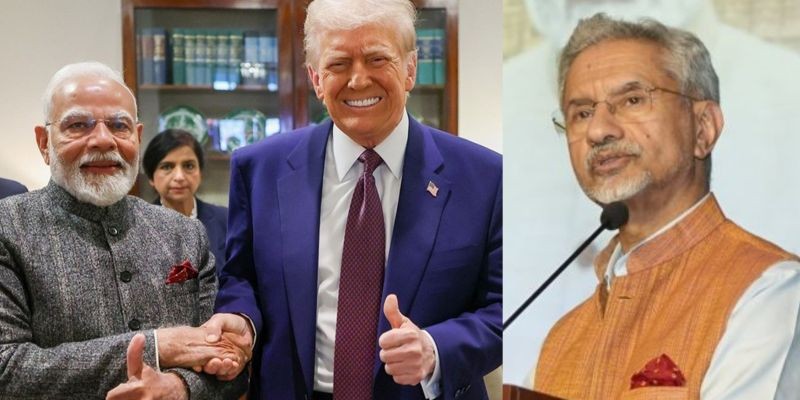Jammu and Kashmir witnessing dip in terrorism incidents after abrogation of Article 370: Amit Shah

Hyderabad: Union Home Minister Amit Shah on Saturday claimed that the number of terror incidents in Jammu and Kashmir has reduced drastically after the abrogation of Article 370.
Addressing the convocation ceremony of 74 RR IPS batch of Sardar Vallabhbhai Patel National Police Academy (SVPNPA) here, Shah, also the Cooperation Minister said, "When we assess the internal security scenario of the country eight years ago, the terrorist incidents in Jammu and Kashmir, insurgency inside the Northeast and increasing violence in the Left Wing Extremism (LWE) areas, were the three major challenges in front of us."
"Now, after 8 years, 'the BJP-led NDA government has succeeded in countering these three challenges to a large extent," he said.
He added that over 8,000 cadets have been brought back to the mainstream by signing a peace deal with many insurgent organizations in the North East and settling the border disputes between the states, a wave of development has begun today and with the establishment of peace a dawn of new era has been witnessed in North East.
By filling the security vacuum and cracking down on their top leadership of LWE, the number of 96 districts under Left Wing Extremist zones in 2010 reduced just to 46 in 2021.
Shah said that India has showcased a successful example to the world by banning PFI. Central agencies and the police of all the states of the country have succeeded in banning an organization like PFI by successful operation in a single day.
It shows the maturity and power of our democracy, the Minister said.
He said that under the leadership of Prime Minister Narendra Modi, the main reasons for the reduction in the incidents of terrorism across the country, are the policy of 'zero tolerance' against terrorism, strong framework of counter-terror laws, empowerment of all agencies and strong political will.
The global participation of our agencies is also expanding. The holding of the Interpol General Assembly in India and India's leadership in the field of terrorism and finance in No Money for Terror conference symbolises the acceptance of our security agencies globally.
Shah said that by establishing Forensic Science University during the past 3 years, India has endeavored to fill the expert human resource and logistical gap in the field of forensic science.
The Officer Trainees when they move from SVPNPA to Field, they will be associated with Inter-operable Criminal Justice System (ICJS) and the main pillars of Criminal Justice namely e-Courts, e-Prison, e-Forensic, e-Prosecution and Crime and Criminal Tracking Network (CCTN) and facilitate linking the work of policing with ICJS.
The Minister said that at present NIA is extending in all the states of the country and the expansion of NIA and NCB is a very important step to crack down on criminals linked to international narcotics and terrorism.
Under the leadership of Narendra Modi, a National database on crimes like terrorism, narcotics and economic offenses is being developed. NAFIS (National Automated Fingerprint Identification System) has also been launched for making a fingerprint database.
The Government of India has also established the Indian Cyber Crime Coordination Center (I4C) and launched schemes to ensure housing and health for the soldiers and many other schemes to ensure that they spend more time with their families, he said.
(With UNI inputs)




